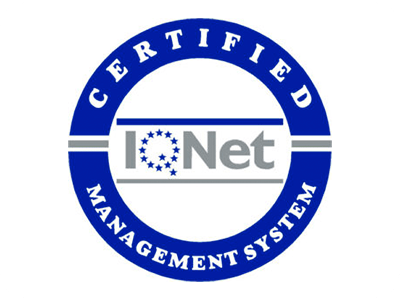How to Use AI for Marketing: 5 Innovative Use Cases
April 21st 2023

Artificial intelligence has rapidly advanced in recent years, transforming the way we live and work. The marketing industry is no exception. AI-powered solutions are revolutionizing the way businesses interact with their customers, optimize their advertising spend and streamline their content creation process. In this article, we’ll explore five use cases that show you how AI can help revolutionize your marketing strategy.
Use case #1: Predictive analytics for customer behavior
Predictive analytics is one of the most popular use cases for AI in marketing. It involves using machine learning algorithms to analyze customer data and predict their behavior. This can include predicting which products they’re likely to buy, which channels they’re likely to use, and which messages they’re likely to respond to.
Examples of predictive analytics in marketing:
1. Lead scoring
Lead scoring involves assigning a score to each lead based on their behavior and interests. For example, if a lead opens an email, clicks on a link, and visits a specific page on your website, they may be assigned a higher score. This can help you identify which leads are most likely to convert and prioritize your sales efforts accordingly.
2. Churn prediction
This involves using machine learning algorithms to identify which customers are most likely to cancel their subscription or stop using your product. By doing so you can proactively reach out to these customers and offer them incentives to stay.
Use case #2: Personalized marketing campaigns using chatbots
Chatbots use natural language processing to simulate human conversation. They can be used to automate customer service, answer frequently asked questions, and provide personalized product recommendations.
Examples of chatbots in marketing:
1. Personalized product recommendations
Chatbots can use machine learning algorithms to analyze customer behavior and recommend products that are most relevant to their interests. This can help increase sales and improve customer satisfaction.
2. Lead generation
Chatbots can be used to engage with website visitors and collect their contact information. They can also ask qualifying questions to identify which leads are most likely to convert. In turn, you can generate more high-quality leads and improve your sales funnel.
Use case #3: Voice search optimization with AI
Voice search is becoming increasingly popular as more people use voice assistants like Alexa and Siri. Voice search optimization involves optimizing your content for voice search queries. This can include using natural language, answering common questions, and optimizing for long-tail keywords.
Examples of voice search optimization in marketing:
1. Analyze voice search queries
By analyzing queries and identifying which keywords and phrases are most commonly used, you can ensure your content is optimized for voice search By using AI in this way, you can improve your visibility on search engines like Google.
2. Sentiment analysis
Sentiment analysis involves analyzing customer feedback to identify the emotions and opinions expressed. This can help you understand how customers feel about your brand and products and identify areas for improvement.
Use case #4: Social media listening using AI
Social media is a powerful tool for marketing, but it can be challenging to keep up with all the conversations happening online. AI can be used to analyze social media conversations and identify trends and patterns. In doing so, you’ll be able to understand how customers feel about your brand and products and identify opportunities for engagement.
Examples of social media listening in marketing:
1. Sentiment analysis
Sentiment analysis involves analyzing social media conversations to identify the emotions and opinions expressed. This can help you understand how customers feel about your brand and products and identify areas for improvement.
2. Trend analysis
Marketers can utilize trend analysis to gain insights into social media conversations and identify emerging trends and topics. In turn, you can discover new opportunities for content creation and engagement.
Use case #5: Dynamic pricing using AI
Dynamic pricing is a pricing strategy that involves adjusting prices based on supply and demand. AI can be used to analyze customer behavior and identify which products are in high demand. This can help you adjust prices in real-time to maximize revenue.
Examples of industries using dynamic pricing in marketing:
1. Airline industry
Airlines use machine learning algorithms to analyze customer behavior and adjust prices accordingly. For example, if a flight is nearly sold out, the price may increase to maximize revenue. If a flight has many empty seats, the price may decrease to attract more customers.
2. E-commerce
E-commerce sites also utilize AI to adjust prices based on factors like time of day, location, and previous purchase history. By using machine learning algorithms, e-commerce sites can analyze massive amounts of data and make real-time price adjustments that are optimized for maximizing revenue and profit margins, while still offering customers competitive prices.
Tools and technologies for AI in marketing
More and more businesses are leveraging cutting-edge technologies to drive customer engagement, improve conversion rates, and enhance the overall customer experience, with AI at the forefront of this transformation. Marketers can utilize powerful tools to analyze data, automate routine tasks, and deliver personalized experiences to customers at scale.
When it comes to AI in marketing, there are a plethora of tools and technologies available that can help businesses achieve their goals. Some of the most popular tools for AI in marketing include Google Analytics, HubSpot, and Salesforce. These tools enable marketers to track and analyze customer behavior, automate repetitive marketing tasks, and create customized experiences for customers.
In summary
By harnessing the power of AI for marketing, you can gain a competitive edge by delivering hyper-personalized experiences to your customers. From product recommendations to targeted advertising campaigns, AI in marketing can help businesses achieve their goals more efficiently and effectively than ever before. With the right tools and technologies in place, businesses can stay ahead of the curve and create lasting relationships with their customers.
Find out how dezzai can help you.
Ready to see what we can do for you?
In the right hands, artificial intelligence can take human performance to a hitherto unimaginable level. Are you ready for evolution?




